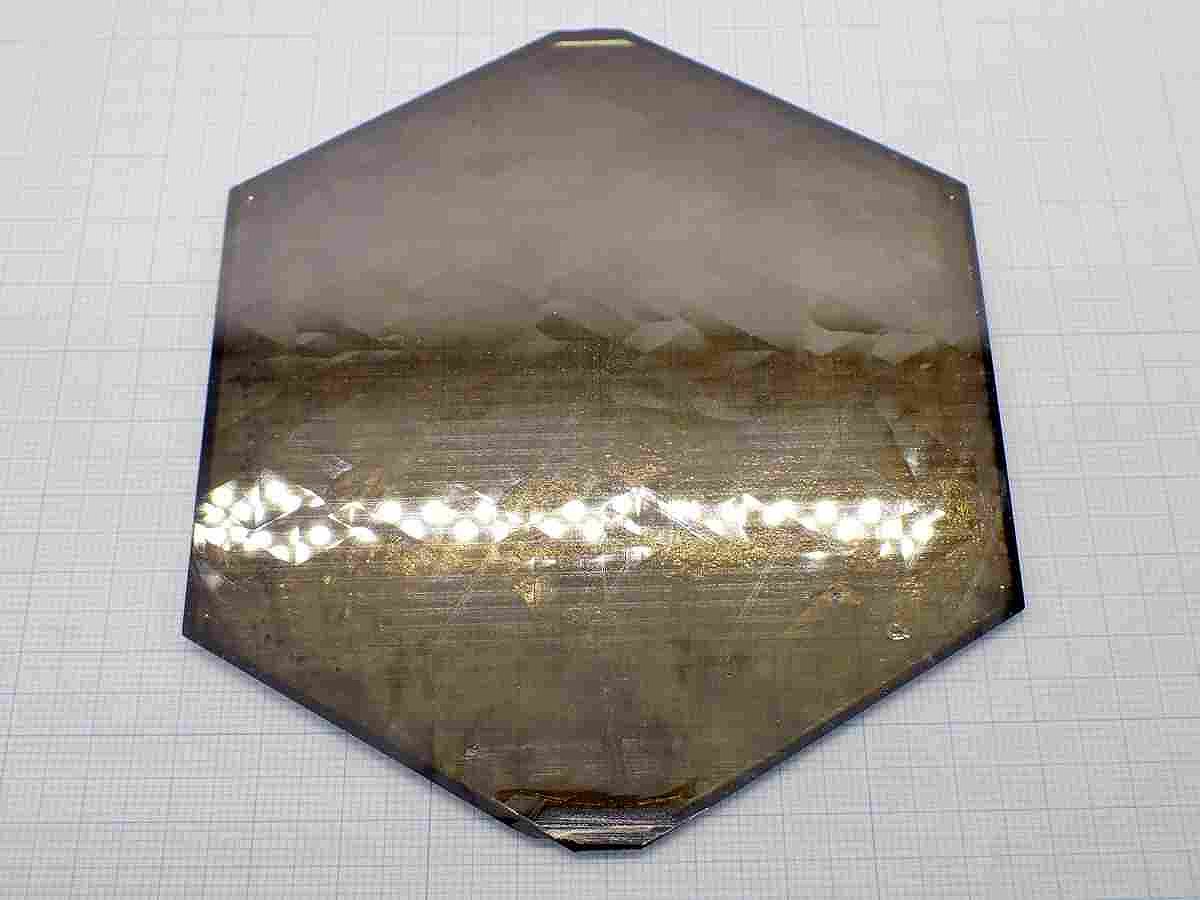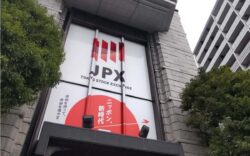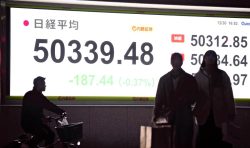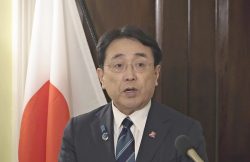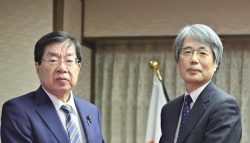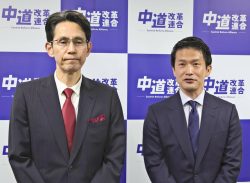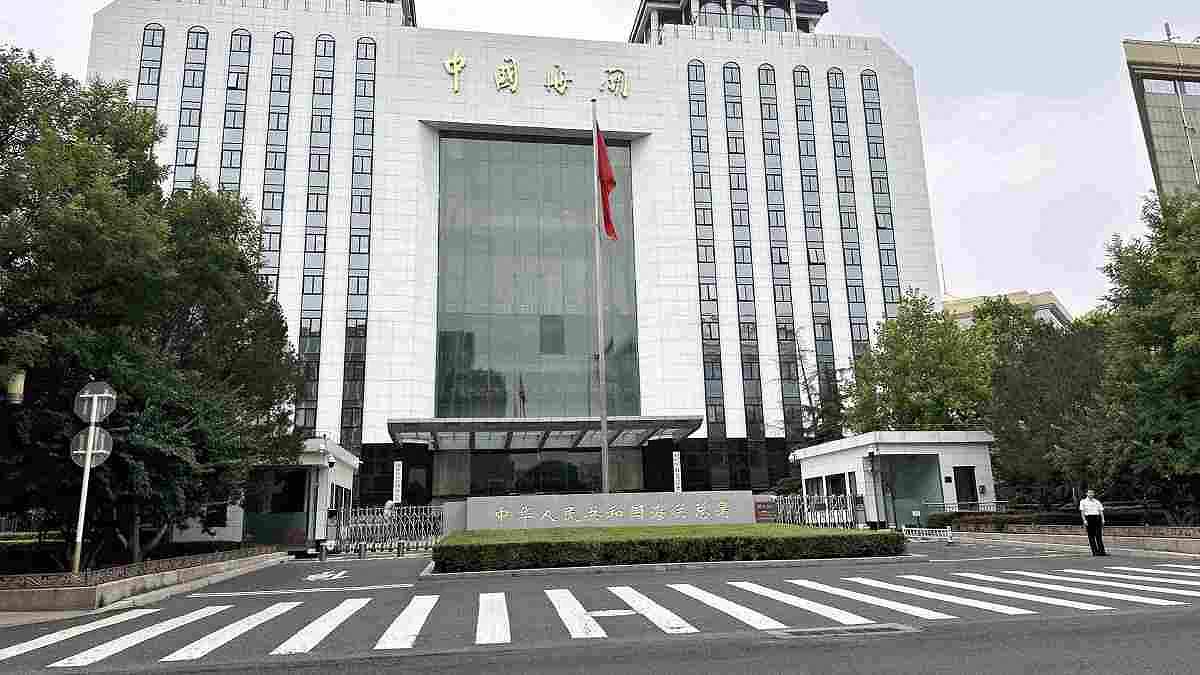
The Chinese customs authorities responsible for issuing clearances for gallium exports operate from this building in Beijing.
17:29 JST, August 4, 2023
BEIJING/WASHINGTON — The Chinese government this month started curbing exports of gallium and germanium — two key materials for making advanced semiconductors — in what smacks of retaliation aimed at Japan and the United States over their export restrictions on semiconductor-related goods to China. As the production of semiconductors comes to rely on input from a greater number of nations, some observers have voiced concern that any disruptions to the supply chain could adversely impact the manufacture of a wide range of products.
On Tuesday morning, the day Beijing’s restrictions came into force, a Japanese materials trading company submitted an export application form for the rare metal gallium to China’s Commerce Ministry. This company exports gallium sourced from China to businesses in Japan. The application form contained many details, including the names of companies that had purchased the gallium and the final products that the material would be used to make. This procedure has become mandatory each time a shipment is exported.
Since the Chinese government’s July 3 announcement that the restrictions would come into force, the trading company has been swamped by four or five times the regular number of orders. The company has been unable to meet this demand on such short notice, and reportedly could secure enough stock to last for only one or two months.
According to information service provider Fastmarkets, the price of gallium has surged by at least 30% since the Chinese government’s announcement. A representative of the trading company said, “If China’s tight restrictions remain in place for several months and exports aren’t permitted, the balance between supply and demand could collapse.”
Source of 98% of gallium
Under Beijing’s new restrictions, every export shipment of gallium and germanium requires a detailed declaration and must receive permission from the Commerce Ministry. The restrictions are purportedly intended to “protect the state’s security and interests.” According to a ministry spokesperson, “These steps are not targeted at a particular nation.”
However, China produces 98% of the world’s gallium.
“It’s clear these restrictions are aimed at Japan, which relies on China for 40% of its gallium,” a source well acquainted with Japan-China relations said, sharing a widely held view. Japan covers part of its own gallium supply through recycling.
In July, former Chinese Commerce Vice Minister Wei Jianguo told a Chinese media outlet that the export restrictions are “just the beginning of China’s countermeasures, and China’s tool box has many more types of measures available.”
China’s actions come against a backdrop of export restrictions the United States slapped on semiconductor-related technologies and manufacturing equipment in October 2022. The Netherlands, which has a monopoly on certain advanced lithography machines, and Japan, which has prowess in semiconductor manufacturing equipment, also effectively followed the U.S. lead and imposed export controls on these technologies.
If Japan, the United States and Europe work together against China on this issue, Beijing’s fears of an advanced semiconductor shortage would grow. China feels a sense of urgency on this issue because, according to The Economist, it could slow production of smartphones and AI-related technologies, fields to which China is devoting considerable resources.
Trying to avoid conflict
The U.S. National Security Strategy states that China is the United States’ “most consequential competitor,” and Washington is pushing ahead with efforts to build supply chains that do not rely on the Asian economic giant. However, neither side wishes to find itself in a situation in which they misread the other’s intentions and an unforeseen conflict erupts. The United States aims to deepen communication through cabinet-level dialogue and to craft a relationship that can manage bilateral tensions.
U.S. media outlet Bloomberg recently reported that U.S. Commerce Secretary Gina Raimondo plans to visit Beijing as soon as late August. Raimondo is expected to hold talks with senior Chinese officials on the increasingly thorny issue of semiconductor-related export restrictions.
Whether the Chinese government will expand the list of products subject to export restrictions will also be closely watched. “In some cases, parts made overseas from raw materials produced in China will be used in Chinese industrial products,” Akira Minamikawa, an analyst at British research firm Omdia, pointed out. “I don’t think China will go ahead with a strict stop on these exports.”
Top Articles in Business
-

Prudential Life Insurance Plans to Fully Compensate for Damages Caused by Fraudulent Actions Without Waiting for Third-Party Committee Review
-

Narita Airport, Startup in Japan Demonstrate Machine to Compress Clothes for Tourists to Prevent People from Abandoning Suitcases
-

Asics Opens Factory for Onitsuka Tiger Brand in Western Japan
-

JR Tokai, Shizuoka Pref. Agree on Water Resources for Maglev Train Construction
-

KDDI Opens AI Data Center at Former Sharp Plant in Osaka Prefecture; Facility Will Provide Google’s Gemini AI Model for Domestic Users
JN ACCESS RANKING
-

Japan Institute to Use Domestic Commercial Optical Lattice Clock to Set Japan Standard Time
-

Israeli Ambassador to Japan Speaks about Japan’s Role in the Reconstruction of Gaza
-

Man Infected with Measles May Have Come in Contact with Many People in Tokyo, Went to Store, Restaurant Around When Symptoms Emerged
-

China Eyes Rare Earth Foothold in Malaysia to Maintain Dominance, Counter Japan, U.S.
-

Australian Woman Dies After Mishap on Ski Lift in Nagano Prefecture
